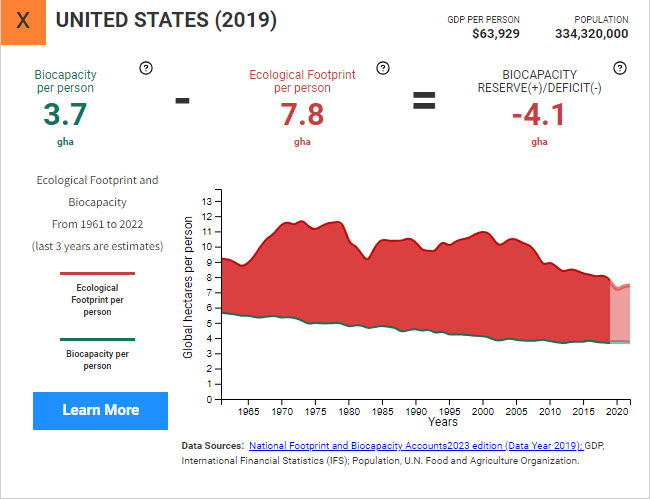Ecological Footprints
Published: 2023-12-14 2:53 PM
Category: Teaching | Tags: environmental science, ecological footprint, application, limitations
We're finishing our human population unit in environmental science this week. This has been a difficult unit to teach because many of the solutions offered to combat climate change are much more difficult to envision for high schoolers, especially in a rural setting.

Students each calculatd their own footprint and we had a discussion about how resources in our lives contribute to our footprints. Much of the rhetoric about stopping climate change is around individual choice and ways we use resources. As teens, that isn't always an option.

Living in a rural environment means driving places. Public transportation isn't an option and there may or may not be carpooling options because resources are more spread out. One thing I wish we had done was to map out the difference between one person driving farther to carpool and two people driving less to get somewhere independently. Small differences can add up and it can empower students to take ownership of what they can change.
All that said, I also recognized that there is significant inequity. Corporations and wealthier individuals put out far more carbon than any of us ever will. That doesn't mean we cannot help with solutions, but it also means that we are only able to do so much to contribute to change.

One metric for measuring our own use is to look at our country. These are representations of resource use and are not meant to shame or blame any one person - just a way to reflect on how we contribute to the health of the planet. Hopefully this exercise helped them think through what choices they'll make as they get older.

Comments